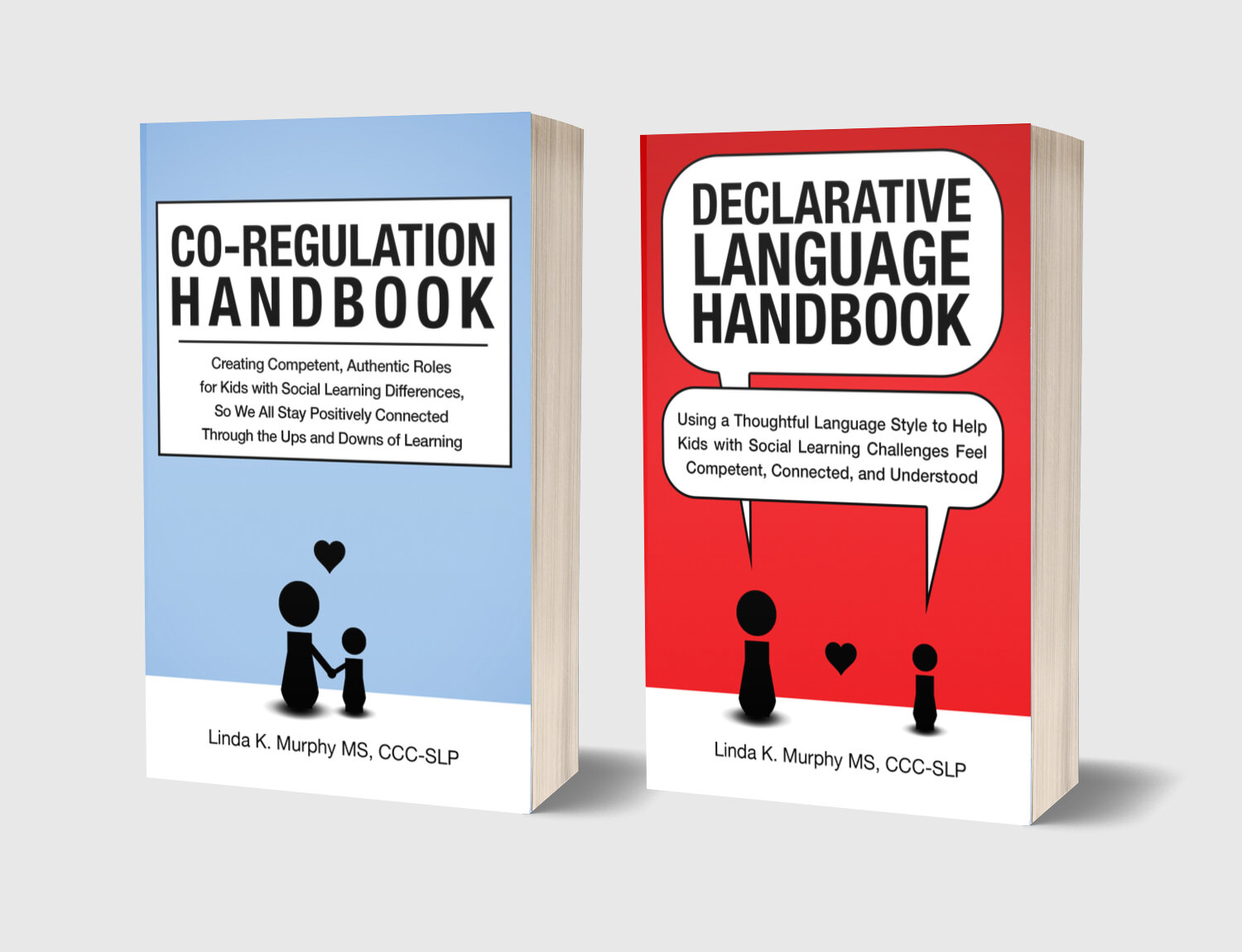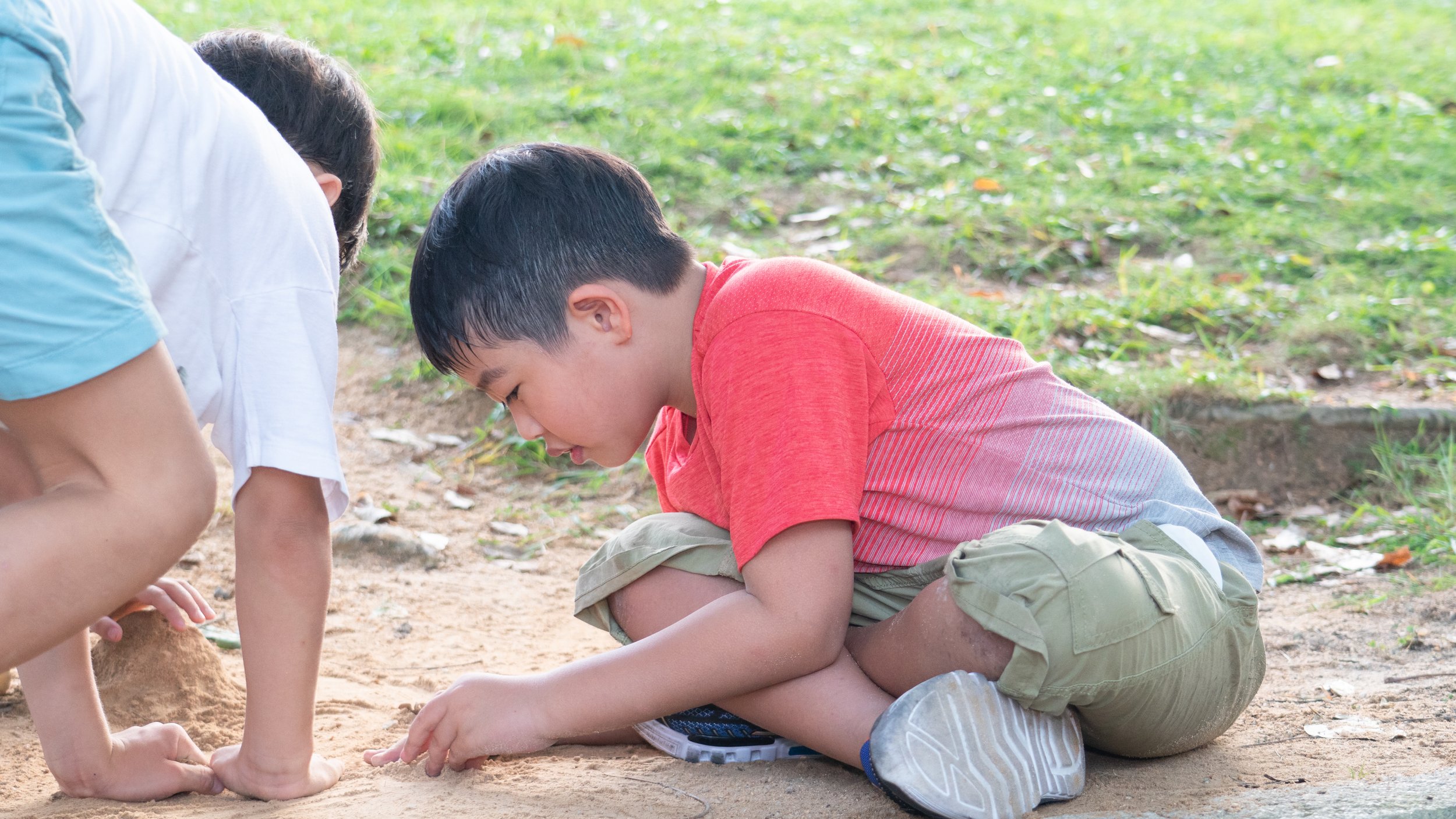Increasing Self Awareness: Helping Kids Become Their Own Best Advocates
Charlie is a sweet 6-year-old boy. His biggest challenge is managing his impulses. For example, he may run away unexpectedly, grab things from other kids, yell, and become upset when he feels he has done something wrong. Many of his impulses are safety concerns, and they often have the potential to impact his friendships negatively.
Despite these challenges, Charlie has grown and learned so much with the help of declarative language. I want to share some of his story because we all can learn a lot from him and his mother.
Charlie’s mother, Kim, has embraced using declarative language because she sees the difference it makes for him. It reaches and teaches him in a way that directive language does not. It also empowers him to be an active participant in his own learning and growth.
During a recent session, Kim shared how Charlie can be calm and in control with other kids for a bit, but there is always a time limit. Right around 45 minutes, things start to go downhill. His impulses get the best of him, and his ability to make good choices deteriorates. Everyone leaves crying!
I loved that Kim noticed this about Charlie and, recognizing it would be important to teach him this information as well, we used declarative language to share our knowledge and episodic memories of him with him! We knew that as he increased his self-awareness, he could become a partner in creating situations where he stays successful around peers and learn how to work around his own vulnerabilities when needed.
Our conversation sounded like this:
𝐊𝐢𝐦: Charlie, I’ve noticed that when you are playing with other kids, things go really well most of the time! Remember when you were building a snake pit with Zoey the other day? You two had such a great time.
𝐂𝐡𝐚𝐫𝐥𝐢𝐞: Yes!
𝐊𝐢𝐦: But… I’ve also noticed that when you have been with other kids for longer than 45 minutes, it gets harder for you to make good choices…. I’m wondering if you remember how that playdate ended.
𝐂𝐡𝐚𝐫𝐥𝐢𝐞: Yes I wasn’t making very good choices. I wrecked the snake pit that we had built together.
𝐊𝐢𝐦: I remember that too…I was thinking… maybe it would be smart if we notice the time that you start playing with other kids, so we can think ahead about what time we should stop and head home. If 45 minutes is too long, maybe we should end the playdate after 40 minutes. That way, everyone ends happy.
Charlie thought this was a good idea, and to practice it a bit, he asked for math problems so he could calculate the time he and his mom should end a playdate.
𝐊𝐢𝐦: If you start playing with Zoey at 12:00, I wonder if you could name the time that we should start heading home…
𝐂𝐡𝐚𝐫𝐥𝐢𝐞: … 12:40pm!
After our session, Kim and Charlie looked on-line to pick out a watch* that he could wear, increasing his participation and ultimate independence in this process even more.
*Note: An analog watch is best because it allows kids the opportunity to feel and internalize time passing. Digital clocks and watches do not do this.
Now, the next time Charlie and his mom meet up with other kids, they have a plan. They will notice the start time together and to make a plan about what time they will leave.
Charlie doesn’t want to act on his impulses. He wants to make good choices. Kim knows this. But to be his own advocate, he needed the help of declarative language to understand his strengths and vulnerabilities -- the information that Kim knew, but Charlie did not.
With this plan in place, everyone (Kim, Charlie, Charlie’s friends) is more likely to walk away with positive memories, which will help strengthen and build their relationships over time.
Learn how to speak like Charlie’s mom, and become comfortable including your child in their own learning and self-awareness journey through Declarative Language Handbook!
And, you can follow Charlie’s story as it unfolds in these future posts as well:
If you like my Sunday Snippets of Support, you can receive them directly to your inbox here.


